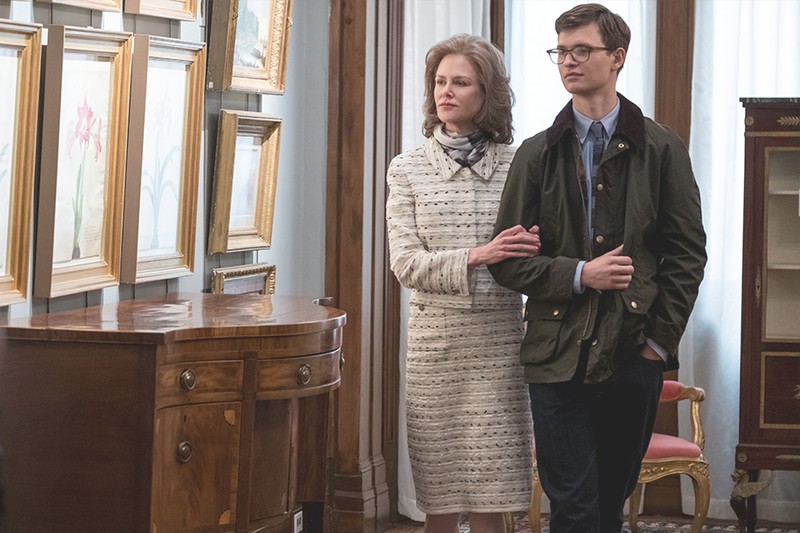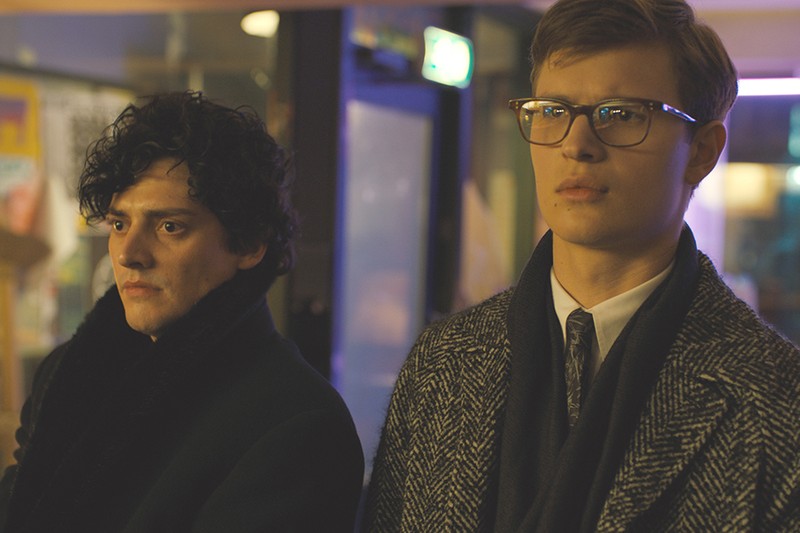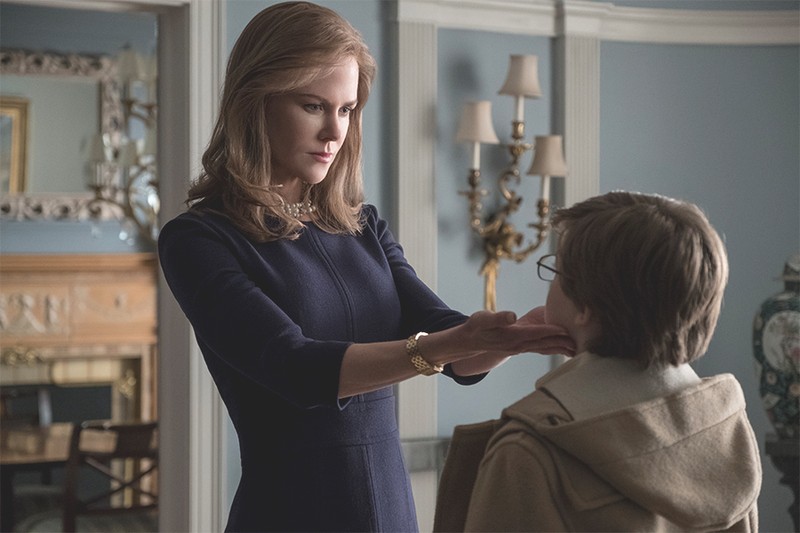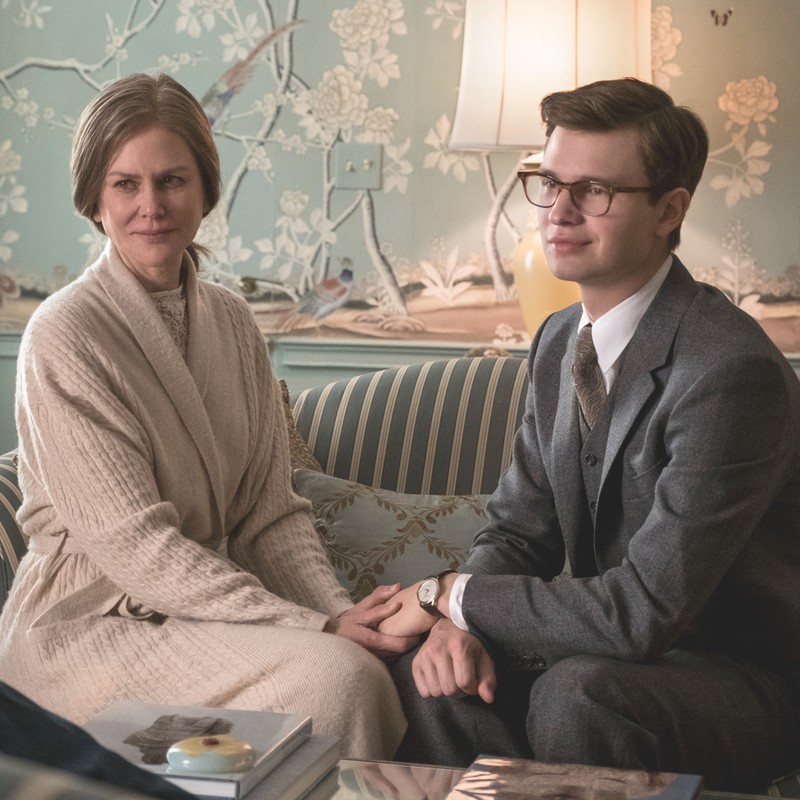The New Film To Watch This Weekend
Every so often, a book causes such excitement that people can’t wait to see it play out on the big screen. That’s how it’s been for The Goldfinch, an adaptation of Donna Tartt’s Pulitzer Prize-winning novel that explores the grief and shame of protagonist Theo Decker. With such expectation comes scrutiny and the film hasn’t fared so well in early screenings, but it doesn’t deserve the derision it’s received.
The Goldfinch is a book loved by millions, including the film’s director John Crowley, who won a Bafta in 2016 for Brooklyn. The cast includes Nicole Kidman and Sarah Paulson, and the themes – morose as they might be – typically make for compelling viewing, so it’s no surprise there was great anticipation when the movie was screened at the Toronto Film Festival recently.
But its premiere prompted a vitriolic response from some of the press. “You might have more fun watching a pigeon for 149 minutes,” suggested Empire. “It’s a disaster,” claimed Indiewire. “One of the worst movies I’ve seen all year,” stated Collider. The scathing remarks prompted leading man Ansel Elgort to defend the movie on Instagram, highlighting an endorsement from his mum, who’s “not moved by all my films… but really liked this one”.
Just like the book, we view the film through the eyes of bookish Theo (Oakes Fegley as youngster, Elgort as adult) who, at 13, loses his mum in a terrorist bombing at New York’s Metropolitan Museum of Art. In the aftermath, a dying elderly gentleman gives dazed and confused Theo a ring, asking him to pass it on to someone. He also points to a small painting, The Goldfinch, lying in the rubble. It’s an image of a chained bird, painted in 1654 by the Dutch painter Carel Fabritius, who died in an explosion himself. Theo impulsively takes the painting, but it’s a decision that comes back to haunt him.



In the ensuing months, Theo stays with a school friend’s Park Avenue family, the Barbours. Despite her icy exterior, Mrs Barbour (Kidman) shows Theo the affection he craves, and he looks set to become a permanent fixture. But then his deadbeat dad (Luke Wilson) arrives with his girlfriend (Paulson) and drags him to a house on the deserted outskirts of Las Vegas. Left to fend for himself most of the time, Theo becomes friends with fellow outcast Boris (Stranger Things’ Finn Wolfhard). They drink beer, try drugs and steal inconsequential items from the local supermarket.
Following some shocking news relating to his dad, Theo returns to New York. He enters the antiques world when gentle-mannered Hobie (Jeffrey Wright), whom the dying elderly man had inadvertently introduced him to, takes him in and shows him the ropes. We see the adult Theo fall in love with redheaded Pippa (Ashleigh Cummings), who was also at the museum that fateful day, and Park Avenue princess Kitsey Barbour (Willa Fitzgerald) who used to tease him when they were kids.
Theo snorts drugs on the quiet, makes some dubious deals, and fights with the enduring belief that he is to blame for his mother’s death. When Boris (now played by Aneurin Barnard) re-enters his life following a chance encounter, a revelation is made regarding the painting, and everything begins to crumble.
It’s a faithful adaptation of a book that’s part coming-of-age tale and part art-world thriller. Crowley takes his time to set the stage, from the life-changing moments in the museum, to the corridors of the Barbours’ impressive apartment and Hobie’s considered musings as he restores antiques in his basement. There’s no denying the film is slow, but there is enough happening to maintain interest. The cool tones of the New York scenes play out beautifully in opposition to the hot, arid landscape of Theo’s desert life.
It’s a tricky lead role, but both Fegley and Elgort pull it off, and there are brilliant supporting performances – not least from Paulson and Kidman as the contrasting matriarchal figures in Theo’s life.
The editing is where the film falters. The final act, involving rival drug cartels fighting over the stolen painting, feels at odds with the stylishly slow-paced start. The action also moves back and forth in time a lot, which gives a jagged feel to proceedings. It can be a little confusing too, which is possibly why you lose some empathy for Theo along the way.
However, fans of the book will find comfort in the film, even if they don’t agree with its execution. The Goldfinch should also pique the interest of those who haven’t read the book. It might not be perfect, and it might not be the shoo-in for awards season it was supposed to be, but it is inexplicable that some people consider it one of the worst movies of the year. Despite the faults, there’s much to enjoy.
The Goldfinch is out on 27th September.
DISCLAIMER: We endeavour to always credit the correct original source of every image we use. If you think a credit may be incorrect, please contact us at info@sheerluxe.com.


